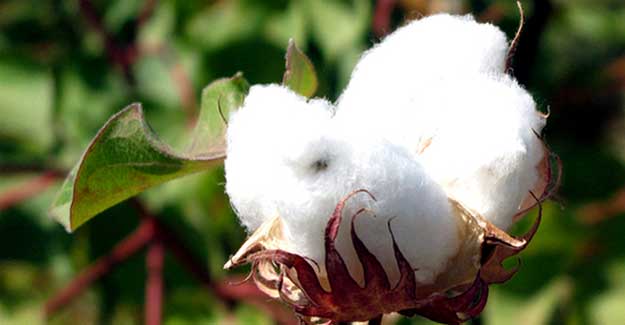
Steps Underway To Boost Bangladesh Cotton Yield
Govt offers funds to farmers, aims to cut reliance on imports Bangladeshi government targets to raise cotton yield, as local spinners have to spend billions of dollars to import the white fibre to produce garment items. The country's Cotton Development Board (CDB) has already started providing funds to cotton farmers - Tk 15,000 per head from a fund of Tk 5 crore - to encourage more people to produce the fibre. The board is also looking for new cotton farming lands in hilly and char areas in different districts along with the existing areas in Jashore, Rangpur, Dinajpur, Rajshahi, Gazipur and Mymensingh. "We have a target to expand the cotton cultivation area to 55,000 hectares from 43,500 hectares now in the next five years," said Md Akhtaruzzaman, deputy director of CDB. "We will also use hybrid seeds to double the production by this time." Currently, yield per hectare stands at 1.5 tonnes and it would go up to 3-3.5 tonnes if hybrid seeds are used, he said. The CDB hopes to produce 2.5 lakh bales of cotton by 2021, which would meet nearly 5-7% of the annual demand for the fibre in Bangladesh, the largest cotton importer in the world. Currently, Bangladesh imports US$ 3 billion worth of cotton a year. Last fiscal year, the country produced 1.65 lakh bales of cotton, which could meet less than 3% of the annual demand of 10 million bales. Last fiscal year, the country imported 7.1 million bales of cotton, meeting 97% of the demand of the country's more than 440 spinning mills. Some private seed companies also produce and market high-yield hybrid variety of cotton seeds as many farmers and spinners are showing interest to grow cotton as it has the possibility of becoming a cash crop. Mehdi Ali, president of the Bangladesh Cotton Association, is hopeful that one day the local cotton will meet at least 15% of demand. "I am hopeful because some major seed companies are making new investments to grow cotton," he said, adding that spinners are also showing interest to cultivate the crop under contract farming. "We need our own cotton as we can't depend on foreign cotton always," Ali said. However, Monsoor Ahmed, secretary of Bangladesh Textile Mills Association, said local cotton production is too scanty to meet a minimum portion of the local demand. Spinners and cotton traders still prefer to depend on imports because of its low prices in the global markets, he said. Of the imports, nearly 50% comes from India, down from about 60% two or three years ago, as importers have found some alternative markets, particularly in Africa, according to Ali.
Textile Excellence
If you wish to Subscribe to Textile Excellence Print Edition, kindly fill in the below form and we shall get back to you with details.













